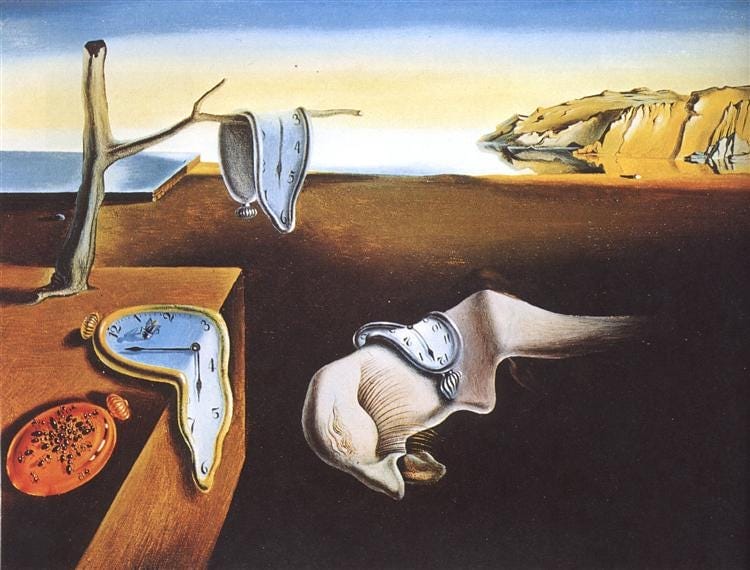
Mind-training and weight-training are completely similar in one very important way: the results of both are dependent on the amount of time you put into the effort. Only have five minutes in the morning for the gym? Don’t expect to have a ripped body anytime soon. Only have five minutes to meditate? Don’t expect to attain a tranquil mind, let alone enlightenment.
Please don’t take my meaning to be that you shouldn’t spend the five minutes you can spare in either endeavor; you do obtain benefits no matter how short a period of time you spend. But if you are looking for big changes in your life, you have to put the time in.
I am sometimes asked about my meditating for more than an hour each day. I usually sit for 108 minutes in the early morning. My short answer is: all the really interesting stuff happens after the first hour!
If you are meditating to develop concentration and “mindfulness” then even a 30 second pause has important benefits; but if you are meditating to go beyond mindfulness, into advanced practices such as those described in this publication on Medium using inner spontaneous sound, then I recommend sitting for more than an hour because your mind needs time to let go, and then the really interesting stuff starts.
Why do I sit for 108 minutes?
I found myself always striving to meditate for 15 minutes, 20 minutes, 30 minutes, 45 minutes, 60 minutes, an hour-and-a-half… it suddenly dawned on me that I didn’t have to follow the clock geometry of how we tell time, so one day I picked 108 minutes as my daily target. It’s the number of beads on a Buddhist mala, so I meditate for a “mala of minutes” each day. And on those days that I really don’t have time to meditate, I meditate for only an hour. The payoff is a tremendous increase in my ability to accept the day as it comes, with gratitude and energy, and above all else, with a pervasive calm.
There have been two “external” changes that came while meditating like this, for as long as I have, that I will mention. One is a remarkable ability to be patient. Very little fazes you, and you have a seemingly limitless equanimity when dealing with difficult situations.
This became very evident when I was caring at home for my wife at the end of her battle with breast cancer. During those last six weeks, my wife was able to stay at home, rather than go into a hospice. One of the factors involved with that was that I could be present at all times, and able to take care of her, which the hospital overseeing her care ensured by first interviewing me in depth, and then, unbeknownst to me, having the two teams of nurses that came each day in the morning and evening observe me as they were checking on my wife. They kept detailed notes.
When my wife passed away, one of the nurses who had been overseeing her care, confided in me that the daily evaluations that the nurses had been keeping were constantly remarking that they had never met anyone with the ability to gently care for someone in such a loving way, yet never fall into emotional turmoil, as I had been. The head of the home hospice service from the hospital had even written in her report that she had never worked with anyone even close to my “stability” in the face of such a painful and difficult experience.
This tranquillity came as a result of my meditation practice, and so the only thing I take credit for is persevering with that practice, through those last days of her life, even though my legs might have been killing me, my mind perhaps was restless, or I just felt too occupied to spend the time — because those were exactly the days that I most needed to meditate. And while this was an extreme period in my life, the same benefits accrued to my normal life as well.
The other change was at first disconcerting, until someone independently remarked to me that if you meditate for sufficiently long periods of time each and every day, you lose large amounts of memories — unimportant memories.
Scientists have recently taken note of this phenomenon, saying that it appears that since meditation brings with it the ability to “quiet” the mental chatter that normally goes on in our overactive minds, during which we constantly replay events that have occurred and which disturbed or delighted us, thereby “strengthening” those memories, many memories slowly fade away. So only important memories remain, while our memory itself functions normally. We just don’t hold onto unimportant information anymore. And you can feel that spaciousness inside.
You may be wondering why I referred to these two changes as being “external,” when they both seem to be about “internal” changes that I have experienced. Well, the simple answer to that is all the really interesting things happen after the first hour. You’ll see. And when you do, my calling these “external” changes will make perfect sense to you!



